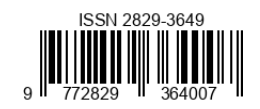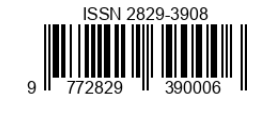Challenges in Indonesia's Investment Policy for Stimulating Economic Growth Through the Omnibus Law
DOI:
https://doi.org/10.56910/literacy.v3i2.1663Keywords:
Economic Growth, Investment in Indonesia, Investment Regulation, Legal Uncertainty, Omnibus LawAbstract
Indonesia encounters a multitude of obstacles in enhancing investment and fostering economic progress. Despite the significant potential of investment markets, inadequate investment regulation has emerged as a significant obstacle to achieving sustainable economic growth. The government is addressing this challenge by implementing the Omnibus Law, which seeks to streamline rules and foster an environment conducive to investment. Nevertheless, the execution of this Omnibus Law is encountering several hindrances, including discrepancies in regulations between the central and regional authorities, as well as a wide range of public responses. The study seeks to analyze the obstacles to investment policy in Indonesia and its influence on economic growth. This study employs a normative jurisprudence approach, which entails examining the provisions of the relevant legislation about capital investments and the Omnibus Law. This approach also encompasses the examination of literature and other legal materials to have a full understanding of the diverse pertinent legal facets. This normative jurisprudential approach will aid in detecting legal ambiguity, intricate bureaucracy, and diverse regulatory obstacles that impact the investment environment in Indonesia. Furthermore, the study will assess the efficacy of the Omnibus Law in streamlining rules and promoting investment. The findings of this study indicate that the primary barriers to more investment in Indonesia are the presence of legal ambiguity and a complex bureaucratic system. While the Omnibus Law holds promise for improving the investment climate, its successful implementation necessitates increased openness and public involvement. It is advisable for the Indonesian government to improve coordination between the central and regional authorities, and to engage several stakeholders in the process of policy-making. These steps are anticipated to decrease ambiguity and enhance investor assurance, hence stimulating sustainable economic expansion.
References
Ansari, Muhammad Insa. "Omnibus Law Untuk Menata Regulasi Penanaman Modal." Jurnal Rechts Vinding: Media Pembinaan Hukum Nasional 9, no. 1 (2020): 71.
Budiartha, I. Ketut, and I. Made Sadha Suardikha. "Pengaruh Modal Investasi Minimal di BNI Sekuritas, Return dan persepsi terhadap risiko pada minat investasi Mahasiswa, dengan penghasilan sebagai variabel moderasi." E-Jurnal Ekonomi dan Bisnis Universitas Udayana 3 (2014): 377-390.
Hernawati, R. A. S., and Joko Trio Suroso. "Kepastian Hukum Dalam Hukum Investasi Di Indonesia Melalui Omnibus Law." Jurnal Ilmiah Manajemen, Ekonomi, & Akuntansi (MEA) 4, no. 1 (2020): 392-408.
Jayus, Jaja Ahmad. "Konsep Sistem Hukum Investasi Dalam Menjamin Adanya Kepastian Hukum." Litigasi 16, no. 2 (2015).
Lainawa, Euagelion Caroline Quirina. "Pengaruh Penanaman Modal Asing Terhadap Nilai Kurs Dalam Investasi di Indonesia." Lex Administratum 10, no. 2 (2022).
Mayasari, Ima. "Kebijakan reformasi regulasi melalui implementasi omnibus law di Indonesia." Jurnal Rechts Vinding: Media Pembinaan Hukum Nasional 9, no. 1 (2020): 1.
Roihan, Muhammad Irham. "Omnibus Law Ditinjau Dari Perspektif Sistem Perundang-Undangan Di Indonesia (Studi Undang-Undang Nomor 11 Tahun 2020 Tentang Cipta Kerja)." (2021).
Sudiyana, Sudiyana. "Pengaruh Globalisasi Terhadap Pembangunan Ekonomi, Dan Implikasi Hukumnya." QISTIE 9, no. 1 (2017).
Susanto, Deny. "Penguatan Institusi Pelaku Usaha Sektor Keuangan Sebagai Upaya Partisipasi Mewujudkan Negara Hukum Kesejahteraan." In National Conference on Law Studies (NCOLS), vol. 5, no. 1, pp. 897-908. (2023).
Downloads
Published
How to Cite
Issue
Section
License
Copyright (c) 2024 LITERACY : International Scientific Journals of Social, Education, Humanities

This work is licensed under a Creative Commons Attribution-ShareAlike 4.0 International License.







